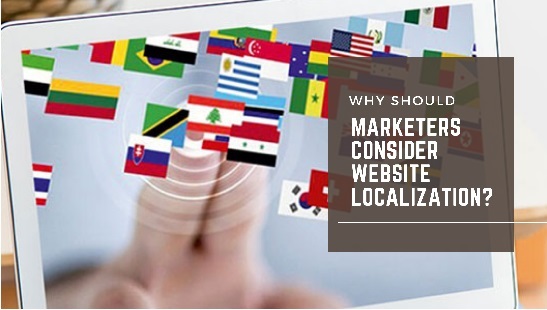May 4, 2022

Localization of website – Should you, do it?
If you’re reading this article, you’re probably thinking about localizing your website and pondering the pros and cons.
Website localization signifies altering your website to create an attractive website that will appeal to your users in a foreign market. Your content will be tailored to local tastes; That means everything from language, layout, currency, units of measurement, images, date and time formats, and more to fit the cultural norms of the intended audience.
While the word may possibly be self-explanatory, let me go ahead and clarify it anyway. As the world becomes increasingly global and the internet gives businesses large and small access to new markets like never before, it doesn’t take a rocket scientist to discover the need for website translation.
The big question that many businesses have is: is it absolutely necessary for website localization?
The answer really depends on you.
Website localization might seem like just another marketing byword, but it’s a significant tool in today’s global economy.
If you sell a product or service online, you have access to international markets.
And today, 75 percent of the world’s three billion Internet subscribers live outside of America.
Wouldn’t it be worth trying to access this huge potential market?
To be clear-cut – website localization is totally different from website translation.
Website translation is just changing the content of your website from one language to another. Whether you do it through an experienced human translator or through a machine, the only thing that will change is the words.
Of more than 4 billion internet users, only 25% speak English. Asia alone has seven times more internet users than all of North America.
The major advantage of website localization is opening up your website and business to people who might then not be able to use it.
90% of Europeans never navigate in a language other than their own. And 42% won’t buy a product that doesn’t have a description in their own language.
If you work with an international market, you should mandatorily consider making your website friendly to each individual of the markets you serve.
While 72% of customers worldwide are more likely to buy a product or service if the information is in their language, 85% of customers will not buy a product if the facts and figures are not in their language.
According to a report by The Localization Industry Standards Association, it was found in 2007 that the probable Return on Investment (ROI) for localization is $25 for every dollar spent.
In another report by Net Media Planet, it was found that brands saw a 20% increase in conversions when website content and paid ads were localized for international markets. When entire websites were localized, that percentage shot up an enormous 70%.
Obviously, when you communicate in the same language as them, people will start to pay attention.
56% believe brand info in their own language is much more vital than price.
Place yourself in your consumer’s shoes. You see an advertisement on social media, you get really excited and click on the website, only to find that you don’t understand anything.
Won’t you feel disheartened?
Let’s assume the circumstances were the opposite. You click and you find a beautiful website in a language you understand, with measurements and currencies you are familiar with. Even the images look local. Wouldn’t you sense or feel like, “Oh, I’m hooked on this brand”?
Localization will help you develop a robust rapport with international customers.
More than half of all Google searches are conducted in languages other than English. Yet 54% of all online content is in English.
When you make your website understandable to as many people as possible, you make it much leisurely for people to find, read, and be engrossed in your content. It will be much simpler for them to fall in love with your brand.
Localization is more than just textual matter; It takes into account things like images, colors, layouts, and custom content for your local audience. In this case, localization helps you show respect to your target audience. For instance, in the Middle East, people read from right to left. This permits you to then modify the layout that reads right-to-left for your Middle Eastern onlookers. For the same markets, meagrely clad models can be odious. Knowing this, you can alter your images. Select, or even re-shoot, images that not only match your brand but also cultural norms.
To conclude, website localization is a means that can give you an advantage in our wide-open world. It’s a responsive move that opens the door to different markets, helps you increase your market and your reach, and improves your SEO and conversions while evading outrage to a target audience. Though it is a big job and a vital one to get right.
Submit your requirement with Vision Global today and we’ll take care of all of your localization requisites!

